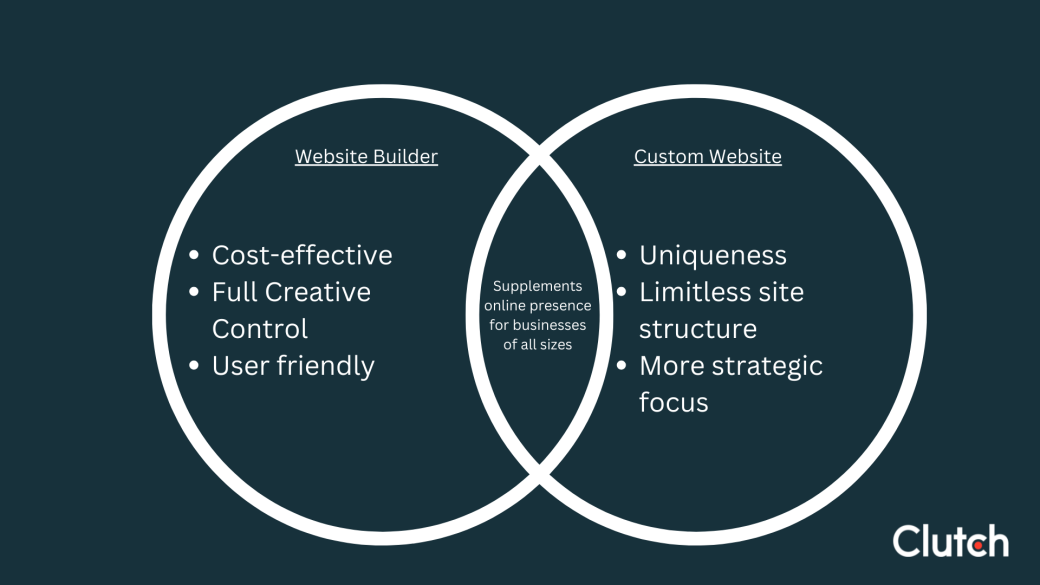
In today’s digitally driven world, it is essential to buy domain names and hosting packages to build a strong and professional online presence for your business. But what can you do if you lack the technical expertise or budget to hire professionals to build your website?
This is where a website builder can come to your rescue. With it, you can build a website with just a few clicks. But are website builders an ideal solution for everyone? Let’s discuss some pros and cons of website builders to help you determine if they can meet your needs.
Understanding a Website Builder
It is a platform that allows you to quickly and easily create a site using drag-and-drop features and plenty of pre-built templates. Website builders allow beginners to quickly build a well-designed and fully functional site without knowing how to code.
The Pros and Cons of Website Builders
Pros of Using a Website Builder
1. No Coding Skills Needed
Writing new code for various aspects of your site is not easy, and you will probably need a lot of time to do this. Fortunately, one of the most important website builder benefits is that you can utilise the drag-and-drop interface to make changes to your website.
If you want to move any items on your site, you can drag and drop them to a new location, which will take less than a few seconds.
2. No Design Skills Required
When designing a website, you have a lot of flexibility and options. Even though you get access to the templates that other users have access to, you have several options to customise your websites.
Besides selecting a template, you can also decide on the placement of different elements on the web page, the backgrounds, colour options, fonts and formatting you want to include on a particular web page.
3. Cost-Effective Solution
Even though hiring an agency or a freelancer to create your site is a good investment, it can be expensive.
If your budget does not allow you to hire a professional, a website builder will quickly enhance your marketing efforts. In most cases, using website builders is very cheap or free, which can help significantly reduce your expenses.
4. No Requirement For Training
If you own a business that uses a website builder, your employees will not require training to make website changes. Since your website will require an update occasionally, and it will be significantly easier if you do not have to make changes yourself every time, your employees can help you with it.
Fortunately, with a website builder, anyone working in the company can make changes to the website without training.
Cons of Using a Website Builder
1. Restricted Features
Many free website builders have limitations regarding the number of pages you can create. However, expanding your content and brand will probably require more pages than a website builder can create. Additionally, free website builders limit features such as SSL certificates, access to online stores, analytics, and plugins.
2. Not Custom Designed
Even though the drag-and-drop feature of a website builder is really easy to work with, you might face some problems. There are certain limitations to what you can do with a drag-and-drop platform, and the lack of customisation options might be an issue for you. This can cause your website to look generic as you will use templates that other websites use.
3. Slow Loading Speed
When you create a site using a free website builder, it will load more slowly than a website created using a paid platform. You require a website that will load faster to provide a good user experience to your customers.
To Wrap It Up
To choose the best website builder, you must consider a few essential factors, such as your site’s purpose, features, price, and ease of use. Your unique requirements will determine the best choice for you.
You must think about your site’s goals and purpose, the tools you will require, your budget, and how you want to interact with your target audience. We hope this blog will help you determine what’s best for you, allowing you to create your site as soon as possible.
